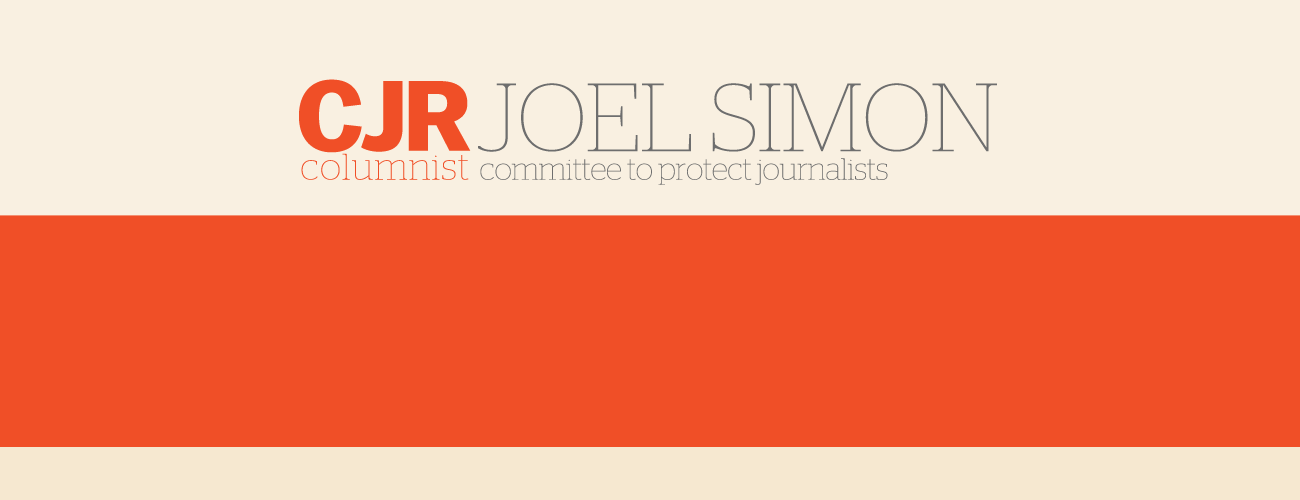Sign up for The Media Today, CJR’s daily newsletter.
For those who loathe the Russian government-funded news organization RT and lament its pernicious influence, the fact the US Justice Department forced it to register as a “foreign agent” is sweet vindication. But such a view is short-sighted. Allowing any government—especially the current US administration—to determine what is journalism and what is not is a terrible idea that could have far-reaching consequences.
RT on November 13 begrudgingly complied with the US Foreign Agents Registration Act, or FARA. The 1938 law, originally created to combat Nazi propaganda, was amended in 1966 to focus on political activities, such as lobbying by foreign governments. The Justice Department first informed RT it would have to register in September. The outlet formerly known as Russia Today and fellow Russian news service Sputnik have been under scrutiny over alleged efforts to influence last year’s US presidential elections.
Already, the foreign agent registration has had consequences. On November 20, the Congressional Radio & Television Correspondents’ Galleries, the body that accredits journalists to cover Congress, unanimously voted to strip RT of its credentials. Entities registered under FARA are required to attach a public disclaimer to any information they distribute. They’re also supposed to disclose any contact with government officials or the US media, a requirement, which if enforced against individual journalists, would make it impossible for RT to conduct confidential reporting.
The provision that allows the Justice Department to compel registration of government-funded media organizations is vague and prone to abuse, which is probably why it has has not been regularly enforced.
The most immediate impact has been the response from the Russian State Duma, which passed a new law requiring that any news organization operating in Russia and receive foreign funding comply with restrictive and far-reaching registration requirements. First to be ensnared are US-funded media outlets Voice of America and Radio Free Liberty, but all international news outlets working in Russia face legal jeopardy. In response to the action taken against RT, the Duma has also threatened to revoke credentials for all US media, blocking access to Russia’s lower house of Parliament. Russia doesn’t need a pretext to crack down on the media, but it is always willing to exploit opportunities. Compelling RT to register under FARA perfectly fits the bill.
ICYMI: Ouch! These are headlines editors probably wish they could take back
In a statement, the US government claimed that Russia’s efforts to “justify new, media-focused legislation as a response to the transparency requirements in [FARA] is disingenuous and inappropriate.” Given the Trump administration’s own press-freedom record, such arguments are not likely to be persuasive.
In fact, the move against RT comes at a time the president himself has continued to engage in efforts that undermine and delegitimize news gathering, particularly his recent attack via Twitter of CNN International, which he claimed represented the country “very poorly.” Autocratic regimes from Egypt to Libya have piled on, denouncing critical stories reported on CNN as “fake news.”
Like many state-sponsored media organizations, RT serves Russian state interests, broadly defined. It uses journalistic content to achieve these objectives, which appear to be focused on undermining public confidence in democratic institutions. RT’s coverage tends to be polarizing and divisive, and not just in the United States.
For example, RT played a key role during in the October 27 Catalan independence referendum by amplifying the most extreme voices. This is according to ongoing research in the works by Spanish academic Javier Lesaca, who found that RT and Sputnik engaged in a deliberate strategy of “digital disruption”: They used an army of Venezuelan Chavistas and zombie bots on Twitter to distribute images of protesters beaten by Spanish police along with articles alleging that Catalan secession would ruin the Spanish economy. “Has this anonymous army been involved in other digital battles in Europe or the United States? Are these zombies influencing major governance and institutional crises around the world?” Lesaca asked in an article in The Washington Post. Leseca is particularly concerned about RT’s influence in Latin America, where institutions are weak and support for democracy is declining.
Governments have a legitimate interest in tracking the lobbying efforts of foreign states; they have also a legitimate interest in countering propaganda. To the extent that FARA requires foreign lobbyists to register and make public their activities, it has been an effective tool to achieve these purposes. But the provision that allows the Justice Department to compel registration of government-funded media organizations is vague and prone to abuse, which is probably why it has not been regularly enforced.
Granting governments the authority to define journalism has real-world implications, ranging from decisions about military targeting to protection under shield laws. To the extent that RT is an instrument of the Russian government’s information war, its role is to expose Western hypocrisy, particularly the selective defense of the principles that define democratic culture. By compelling RT to register as a foreign agent, the US government is playing directly into Russia’s hands. Its actions further RT’s mission much more effectively than a thousand polarizing stories.
ICYMI: A striking detail about NBC’s decision to fire Matt Lauer
Has America ever needed a media defender more than now? Help us by joining CJR today.



